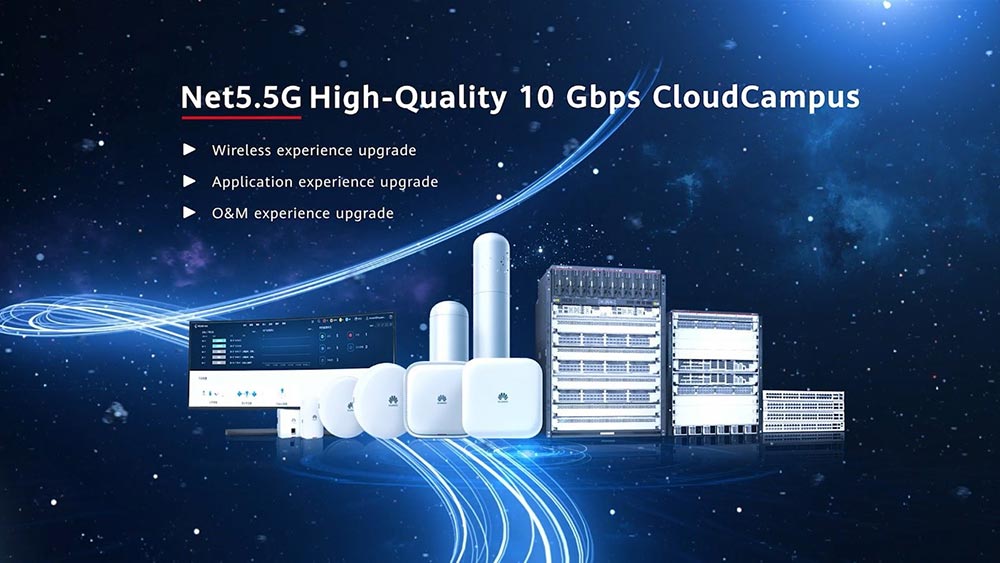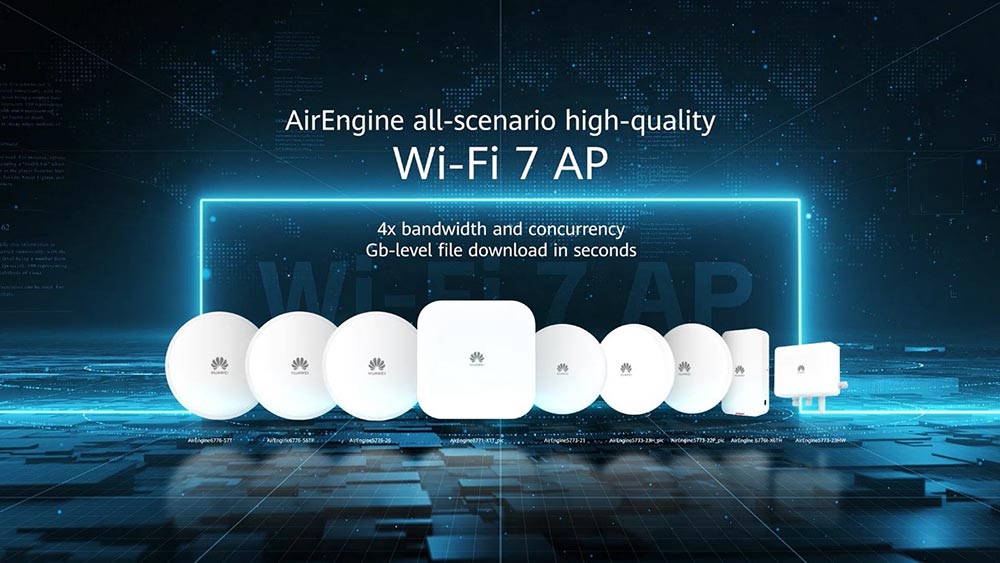This site uses cookies. By continuing to browse the site you are agreeing to our use of cookies. Read our privacy policy>
![]()
This site uses cookies. By continuing to browse the site you are agreeing to our use of cookies. Read our privacy policy>
![]()
Produits, solutions et services pour les entreprises
In today's digital era, the campus economy has become a major driver of national economic development, accounting for a quarter of the gross domestic product (GDP). The campus not only fuels regional economic growth but also serves as a vital indicator of regional social and economic progress. With the ongoing economic globalization and technological innovation, the campus network, fundamental to enterprise operations, is playing an increasingly important role. However, as the digital and intelligent journey unfolds, the traditional campus network architecture is facing unprecedented challenges.

• Fully-wireless terminals
As terminal technologies rapidly evolve, wireless and IoT technologies are catalyzing revolutionary changes in campus data production, transmission, processing, and application. Nevertheless, with the surge in services, traditional Wi-Fi networks struggle to meet the demands for high performance and security.
For example, in healthcare, where the size of a 4-dimensional CT file can reach up to 1 GB, low wireless network bandwidth hampers doctors' mobile image reading, wasting precious emergency treatment time. Similarly, in education, limited Wi-Fi performance impedes high-concurrency 4K VR teaching in smart classrooms, often necessitating a reduction in class size due to technical issues such as motion sickness and video freezing. Moreover, in public services, Wi-Fi air interface security is a major concern that hinders the development of ICT-based e-Government services.
• Always-assured applications
As enterprise applications are increasingly reliant on cloud, video, and AI, future-proof campus network must offer experience assurance for key applications. In addition, the office efficiency of enterprise executives is closely tied to enterprise productivity. Therefore, in network planning, VIP user services must receive preferential guarantees.
Taking Huawei IT as an example, approximately 6 million audio and video conferences occur annually, with about 200,000 experiencing poor quality. Among these, 4,500 VIP conferences require assurance, along with dozens of corporate-level special conferences. However, despite significant manpower investments, issues such as abnormal audio and video experiences and difficult fault locating still occurred.
• Intelligent O&M
The rapid expansion of enterprise networks increases O&M difficulties and costs. To meet the demands of device performance and handle massive amounts of terminal data, intelligent O&M is the key to improving efficiency and reducing costs. In addition, as the scale of the network expands, the energy consumption of network devices becomes a major challenge for enterprises aiming to achieve carbon neutrality.
Especially on university campuses, where each network engineer serves over 10,000 users, and typically performs passive O&M, outdated O&M tools prolong issue diagnosis and resolution to several hours or even days. Furthermore, energy consumption by network devices during winter and summer holidays and at night is another pain point. Because campus network devices continue to consume large amounts of power while idle, they must be manually turned on or off at scheduled times to save energy. This method is inefficient and costly.
The three changes and challenges drive campus network construction to evolve from connectivity-centric to experience-centric. To enhance enterprise efficiency and convenience, Huawei launched the High-Quality 10 Gbps CloudCampus Solution. This experience-centric solution is distinguished by the following three types of experience upgrade:

Wireless experience upgrade
Huawei is the first in the industry to release all-scenario Wi-Fi 7 APs, facilitating the generational upgrade of wireless networks. The tested rate of Huawei Wi-Fi 7 APs reaches up to 4.33 Gbps for a single terminal, double that of Wi-Fi 6E. This high performance makes it possible to download ultra-large files in seconds. Additionally, Huawei's innovative technology allows for converged scheduling of the space domain, frequency domain, time domain, and applications, greatly improving concurrency efficiency and supporting 30-channel 4K VR classes without causing dizziness. Furthermore, Huawei's Wi-Fi 7 innovates with chip-level hardware-based encryption technology, ensuring no performance degradation after encryption. Another innovative technology, Wi-Fi Shield, conceals Wi-Fi signals from unauthorized users, ensuring zero data eavesdropping.
Leveraging dynamic-zoom smart antennas, converged scheduling technology, and chip-level hardware-based encryption technology, Huawei Wi-Fi 7 not only delivers record-high bandwidth, concurrency, and security performance, but also greatly improves network coverage and stability.

Application experience upgrade
Huawei's unique application experience assurance solution accurately identifies 6000 applications, while elastic slicing technology enables key applications to exclusively enjoy fast lanes, ensuring zero interruptions and end-to-end application experience assurance. In addition, the industry's only VIP assurance solution enables VIPs to exclusively use dedicated lanes, ensuring zero degradation of VIP user experience.

O&M experience upgrade
Huawei launched the industry's first network digital map, providing end-to-end visibility of the experience at four levels (network, user, terminal, and application), along with one-click root cause locating. In this way, one person can maintain a campus with tens of thousands of users, making O&M 10 times more efficient.
In addition, the network digital map enables real-time visibility into network energy consumption and energy efficiency ratio (EER). It intelligently recommends the time window for energy-efficient management of wireless APs based on tidal Wi-Fi traffic patterns. The result is energy savings of up to 30% for verified APs.

As the demand for digitalization in diverse industries grows, the campus network plays an increasingly significant role. Huawei's High-Quality 10 Gbps CloudCampus Solution prioritizes network quality and user experience over mere network connectivity. Looking ahead, high-quality 10 Gbps campus networks will emerge as crucial infrastructure and the preferred choice for enterprises seeking to expedite their digital and intelligent journey. These networks will propel the intelligent development of various industries, injecting new vitality and impetus into enterprises' digital and intelligent transformations.
Disclaimer: The views and opinions expressed in this article are those of the author and do not necessarily reflect the official policy, position, products, and technologies of Huawei Technologies Co., Ltd. If you need to learn more about the products and technologies of Huawei Technologies Co., Ltd., please visit our website at e.huawei.com or contact us.